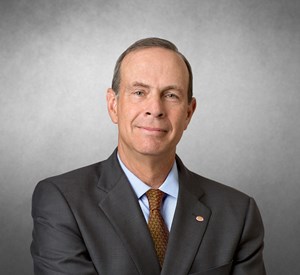Chevron CEO vows to work with U.S. to remain in Venezuela
HOUSTON (Bloomberg) -- Chevron Corp., CEO Mike Wirth pledged to work closely with the U.S. to remain in Venezuela despite a spiraling crisis that has led rival oil major Total SA to retreat.
“Our strong intent is to stay on the ground in Venezuela and be part of building a better future for the people of Venezuela,” Wirth said in an interview in Houston Monday. “We’ve got a very close coordination under way with multiple agencies within the U.S. government.”
Chevron is the largest American oil company left in the South American country, which has the world’s biggest oil reserves and where President Nicolas Maduro faces growing pressure from the U.S. and other nations to step aside. Sanctions issued last month by the Trump administration mean U.S. companies can’t deal with any arm of the Venezuelan government or entities controlled by Maduro, whom it considers illegitimate.
But Chevron, and some U.S. oilfield-service companies including Schlumberger Ltd., have been granted a license until July 27 on their operations within the country. Wirth declined to comment on whether he sees that as a hard deadline and point in time when Chevron would need to withdraw.
“We work closely with the U.S. government to understand how their policy objectives are being manifest through the sanctions they have issued and to ensure we remain in full compliance with U.S. law,” he said.
Chevron has loaded three U.S.-bound ships with Venezuelan oil since Friday, according to shipping reports and ship-tracking data compiled by Bloomberg.
ALSO READ: Texas shale forces big oil cost revolution, Chevron CEO says
Upgrader partnership
Chevron, the world’s third-largest publicly traded oil company by market value, is a joint-venture partner with state-run Petroleos de Venezuela SA, or PDVSA, in the country’s second-largest upgrader, a key facility that converts tar-like, extra-heavy crude into lighter oils for refineries. If Chevron withdrew, it could potentially hand the venture to Maduro, which would go against the spirit of the U.S.’s sanctions.
“It’s a fluid environment,” Wirth said, adding that the safety of employees and operations is the priority. “We do contingency planning. That’s based on our assessment of risks anywhere in the world.”
Total SA plans to pull all its employees from Venezuela as a result of the U.S. sanctions, CEO Patrick Pouyanne said last week. The French company wasn’t on the list of exempt companies published by the Treasury Department on Nov. 1. On Monday, Pouyanne said Total may stay in its Venezuela joint venture, with conditions, as it seeks to “understand what exactly” the U.S. sanctions are.
The U.S. and dozens of other countries have backed National Assembly leader Juan Guaido as interim president as they seek to loosen Maduro’s grip on power. Wirth said Chevron remains “neutral” on who’s in charge.
“It’s a demanding, difficult situation right now, it’s ultimately up to the people of Venezuela to select their political leadership,” he said.



